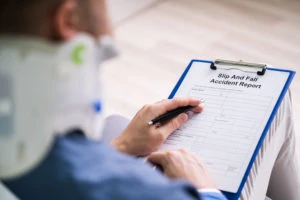What Happens After You Are Arrested in Virginia?
Getting arrested is a scary experience for anyone. Part of that fear is how unfamiliar it is. If you’re unsure about what to do or how the process works, it can make the whole ordeal much more overwhelming and frightening.
Knowing what to expect can help you keep a clear head and make the right decisions to keep out of jail until your court date. Here’s what happens after you are arrested in Virginia, and what you need to know about hiring a criminal defense lawyer after your arrest.
Arrest and Booking
After you have been arrested in Virginia, you will be taken to the local police station for booking. Booking is the process of gathering your personal information, including your fingerprints, and taking your personal property for holding until you’re released from jail.
While this is happening, the arresting officer will make a report of what they observed and request a warrant for a trial. This may have already happened depending on your case. If the local magistrate agrees there is probable cause, they will set a time and date for a bond hearing.
This process can take a few hours, depending on how busy the station is, the complexity of your case, and the magistrate’s schedule. You could be held overnight or longer.
Bond Hearing
A bond hearing is where the magistrate decides if you should be let free until arraignment or have to pay a bond. A bond is a financial guarantee that you’ll come back to your court date. Paying your bond is called paying bail.
At the hearing, you will be told of the magistrate’s decision. You will also be asked at this time if you want the state to provide you with a lawyer or if you want to hire your own. If you have a lawyer and you can’t pay the bond, they can negotiate with the court to reduce the amount you have to pay.
You will also be told the date of your arraignment. It is crucial that you get a lawyer on your side well before this date so they can advise you on this important step. It is also best to pay your bail if you can so that you can prepare your life for the possibility of jail time and search for a lawyer.
Hiring a Criminal Defense Lawyer After Your Arrest
If you choose to contact and hire your own criminal defense lawyer, you will be given a deadline to show you hired a lawyer. This is the attorney review date. Your attorney will file a legal document called a Notice of Appearance after they agree to represent you.
If you cannot get a lawyer before the date, you will need to explain to the court why you don’t have one and show evidence that you tried. If the court accepts your efforts, you can ask for an extension, ask for the state to give you a lawyer, or represent yourself.
Failure to Appear
If you fail to appear before the court for an expected deadline, a warrant will be put out for your arrest. You may lose your freedom until your formal arraignment. This makes it much harder to hire your own lawyer and settle your affairs.
Be absolutely sure about deadlines to appear and take all the steps you need to arrange rides and leave work to meet these crucial appointments after you are arrested in Virginia.
Arraignment
The arraignment is the part where you make a plea to the court, usually in the General District Court in your area of Virginia. You’ll be told your charges and asked how you plead. You can plead guilty, not guilty, or no contest.
No contest means that you don’t dispute the facts of the case, but you also don’t admit guilt. This can help you if you face civil charges. Your lawyer will advise you on the pros and cons of each plea, but it is ultimately up to you.
What happens after your arraignment depends on your plea and your type of crime. Nearly all misdemeanors are heard in the General District Court by a judge unless your lawyer requests a jury trial. Felony cases will go to a preliminary hearing. If you are indicted, you will appear in Virginia Circuit Court for your trial.
By this point in the process, unless you’re representing yourself, your lawyer will be able to advise you on what happens next.



